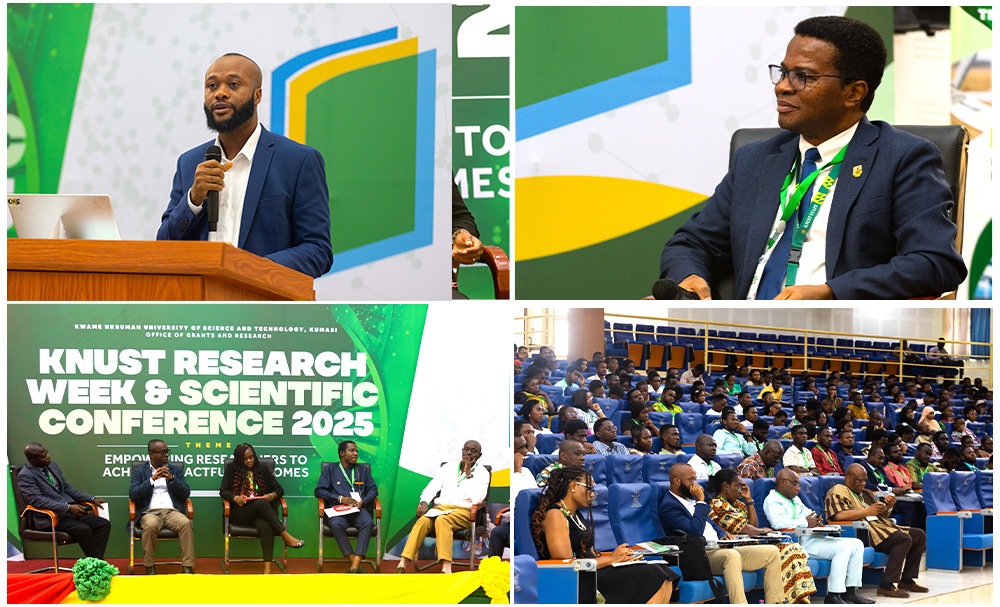Ghana must adopt new partnership models and strategic frameworks to strengthen collaboration between academia and industry if it hopes to become a regional hub for vaccine production, Prof. Mohamed Mutocheluh of the Department of Clinical Microbiology at KNUST has said.
Speaking during a panel session at day two of the KNUST Research Week and Scientific Conference, he noted that building trust, ensuring sustained funding, and aligning institutional priorities are essential to boosting research capacity and improving healthcare delivery.
The discussion, themed “Strengthening Academic and Industry Collaboration for Vaccine Production and Healthcare Delivery in Ghana”, brought together experts from academia, industry, and national research institutions.
It was moderated by Professor Richard Odame Phillips, Scientific Director of the Kumasi Centre for Collaborative Research (KCCR), and Professor Kingsley Badu of the Department of Theoretical and Applied Biology.
Panelists agreed that stronger partnerships were needed to drive innovation, improve healthcare systems, and enhance skills development.
Dr. Ernest Manson, a Medical Biologist at GIZ Pharmavax Ghana, stressed that safeguarding intellectual property remained a major barrier to collaboration.
“Some partners fear their ideas and innovations won’t be adequately protected. Industry must be more open to working with academia, and we must build systems that protect intellectual property and promote transparency,” he said.
He also cautioned against Ghana’s heavy dependence on grant funding for research, calling for policy incentives and shared laboratories to prevent duplication of efforts. He assured that GIZ Pharmavax and the European Union would continue supporting Africa’s vaccine development ecosystem.
Professor Priscilla Kolibea Mante of the Department of Pharmacology highlighted the shortage of practical training and internship opportunities for students, describing it as a gap that weakens the workforce pipeline.
“If industry players do not open their doors to students in training, graduates will enter the job market unprepared for its demands. Structured internship programmes will go a long way to bridge that gap,” she said.
She further advocated for endowment-style research funding to ensure continuity and stability.
Professor Kojo Asamoah Kusi from the Noguchi Memorial Institute for Medical Research underscored the need for research to directly support Ghana’s vaccine manufacturing ambitions.
“If we are going to be a vaccine manufacturing hub, we need to conduct relevant research. We cannot continue to depend on external grants, as it would direct the type of research done. We need local and governmental grants to support our work,” he said.
Dr. Faisal Nuhu, Deputy Chief Executive Officer of the National Vaccine Authority (NVA), said universities are key to advancing Ghana’s vaccine agenda and expressed optimism about future collaborations with KNUST.
“I hope there will be opportunities in the future to discuss the key role KNUST will play in our vision of empowering researchers to be more impactful,” he said.
He warned that in an era defined by pandemics, climate change, antimicrobial resistance and rising non-communicable diseases, siloed approaches would fail.
“The era of working in silos is over. Ghana must utilise this opportunity and lead in developing homegrown solutions. Anything short of that, we will fail ourselves, our generation, and generations after,” he said.
The panel concluded that forging strong, transparent, and well-financed academia–industry partnerships is central to achieving Ghana’s long-term ambitions in vaccine production, health innovation, and sustainable development.


















